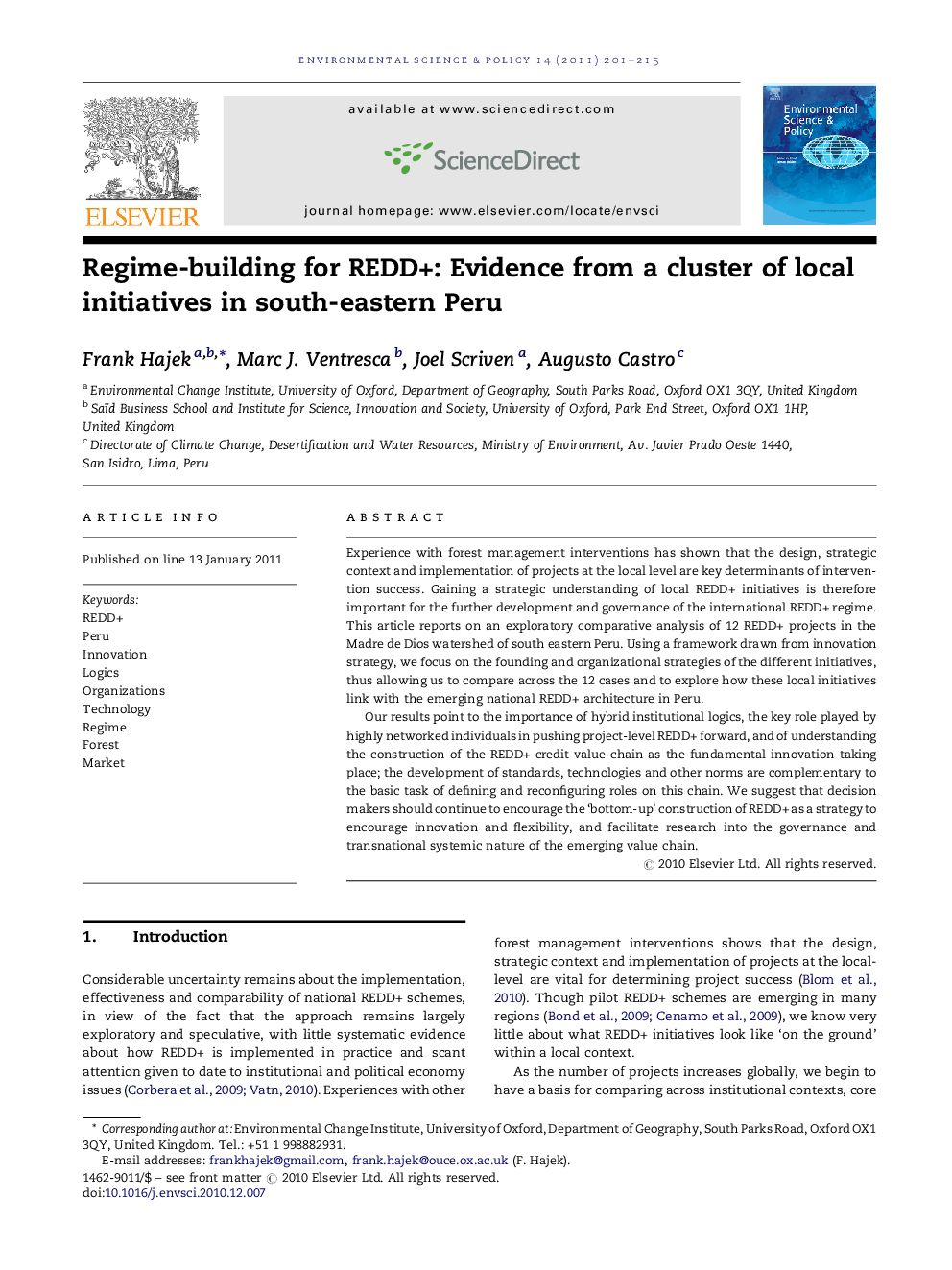| Article ID | Journal | Published Year | Pages | File Type |
|---|---|---|---|---|
| 1053826 | Environmental Science & Policy | 2011 | 15 Pages |
Experience with forest management interventions has shown that the design, strategic context and implementation of projects at the local level are key determinants of intervention success. Gaining a strategic understanding of local REDD+ initiatives is therefore important for the further development and governance of the international REDD+ regime. This article reports on an exploratory comparative analysis of 12 REDD+ projects in the Madre de Dios watershed of south eastern Peru. Using a framework drawn from innovation strategy, we focus on the founding and organizational strategies of the different initiatives, thus allowing us to compare across the 12 cases and to explore how these local initiatives link with the emerging national REDD+ architecture in Peru.Our results point to the importance of hybrid institutional logics, the key role played by highly networked individuals in pushing project-level REDD+ forward, and of understanding the construction of the REDD+ credit value chain as the fundamental innovation taking place; the development of standards, technologies and other norms are complementary to the basic task of defining and reconfiguring roles on this chain. We suggest that decision makers should continue to encourage the ‘bottom-up’ construction of REDD+ as a strategy to encourage innovation and flexibility, and facilitate research into the governance and transnational systemic nature of the emerging value chain.
